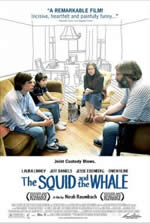Dan Simmons - Hyperion (1)
 An excellent crossover between literary history, theological treatise and captivating worldbuilding science fiction, the only shortcoming of this book is that it ends just when things start to become interesting. Not until the last few pages did I realize that the confrontation with the frightening entity called the Shrike, the opening of the Time Tombs and the outcome of the big conflict between human and AI madness would be subject of the sequel. Still, this collection of the life stories of six people, bound together by a pilgrimage (Hello, Chaucer), weaves a picture of a future, where technology and metaphysics blend into a web of awe.
An excellent crossover between literary history, theological treatise and captivating worldbuilding science fiction, the only shortcoming of this book is that it ends just when things start to become interesting. Not until the last few pages did I realize that the confrontation with the frightening entity called the Shrike, the opening of the Time Tombs and the outcome of the big conflict between human and AI madness would be subject of the sequel. Still, this collection of the life stories of six people, bound together by a pilgrimage (Hello, Chaucer), weaves a picture of a future, where technology and metaphysics blend into a web of awe.It's interesting to see Simmons trying to deal with a technical detail problem facing every attempt at Science Fiction with some cultural and historical background: either every reference has to be composed and explained in detail, or all the references come from 19th and 20th century culture, which becomes increasingly improbable the further in the future the plot is set. The fact that his plot contains people from many different epochs makes up for some of that asymmetry. That device almost justifies the pilgrims singing "We're off to see the Wizard" when they go to face the Shrike, and the difference is made up by the creepiness of that very image. But overall, it still doesn't quite come together, the lists of artists that are mentioned in a few places always separate nicely into the ones the reader knows and those unkonown names just plugged in to indicate the passing of time. But if the past is any indication for the future, hardly anybody from our time will still be known 600 years hence. Maybe Simmons is as close as one can get to solving that particular problem here.
























